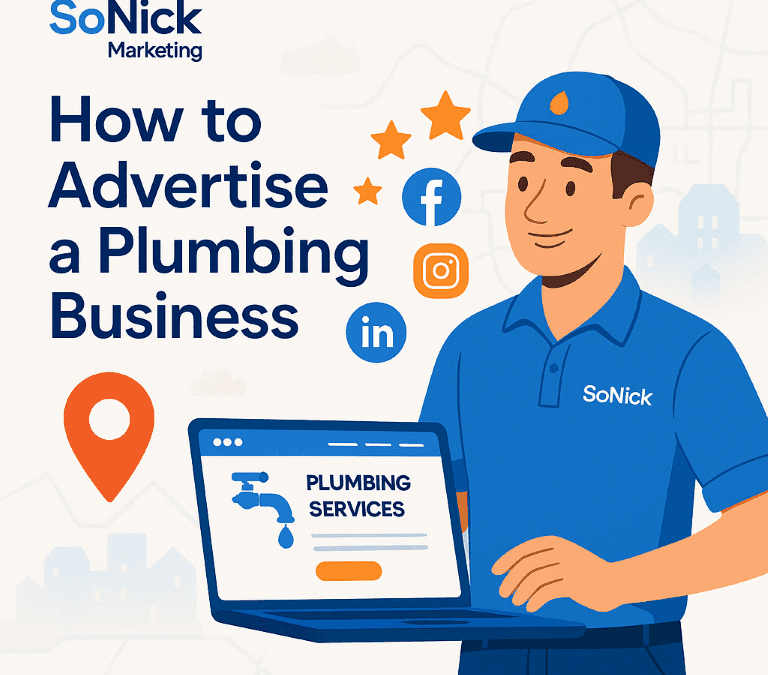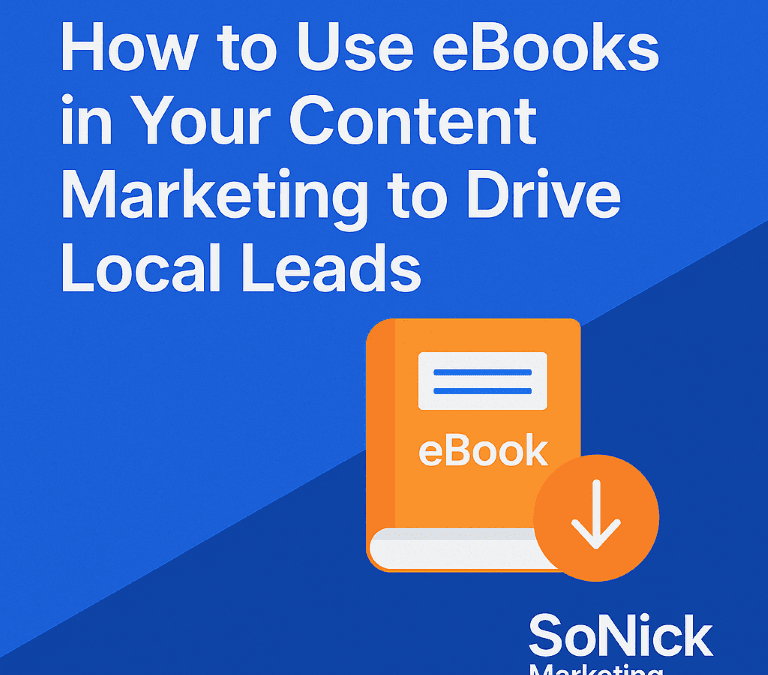You’ve probably noticed that the most memorable brands don’t just sell products—they tell stories that stick with you long after you’ve encountered them. Whether it’s Apple’s tale of innovation or Nike’s celebration of athletic triumph, these companies have mastered the art of narrative marketing. While you might think storytelling is just about creative writing, it’s actually a strategic tool that can transform your brand from a faceless entity into a relatable presence in your customers’ lives. The question isn’t whether you should use storytelling in your marketing strategy, but rather how you’ll craft narratives that capture attention and inspire action in an increasingly distracted world.
Key Takeaways
- Develop detailed audience personas to understand your target market’s values and challenges, increasing engagement potential by up to 55%.
- Create authentic narratives that trigger emotional connections, as emotionally connected customers are worth 52% more than merely satisfied ones.
- Structure compelling stories with relatable protagonists and clear conflicts, making content 22 times more memorable for audiences.
- Maintain consistent brand messaging across all platforms while adapting story formats to each channel’s specific requirements.
- Incorporate real customer testimonials and success stories, which generate 12 times more impact than traditional product information.
The Power of Brand Narratives

Through the lens of modern marketing, brand narratives have emerged as powerful tools for connecting with audiences on a deeper level. Research shows that 57% of consumers are more likely to make purchases from brands they find relatable, highlighting the vital role of storytelling in driving sales and fostering emotional connections with your target audience.
Consistent brand content generates three times more leads while costing 62% less than traditional marketing channels, making it an important investment for businesses of all sizes.
When you’re developing your brand narratives, focus on authenticity to build trust and credibility. You’ll find that genuine content naturally resonates with your audience, leading to increased engagement and sustained customer loyalty.
The impact of effective storytelling on brand awareness can’t be understated, with 44% of consumers willing to share compelling brand stories within their networks. This organic sharing extends your reach and amplifies your message considerably.
To maximise your customer experience, guarantee your brand narratives remain consistent across all channels. You’ll want to craft stories that not only communicate your values but also create lasting emotional connections.
Statistics show that emotionally connected customers are worth 52% more than those who are simply satisfied, making storytelling an important component of your brand strategy.
Elements of Compelling Stories
Your brand story needs compelling heroes who take audiences on emotional journeys that mirror their own experiences and challenges.
Just as case studies demonstrate successful client outcomes in legal content marketing, your narrative should showcase relatable protagonists overcoming obstacles.
When you introduce meaningful conflicts into your narrative, you’ll create the necessary tension that propels your story forward and keeps your audience invested in the outcome.
Adding distinctive visual elements, from consistent colour schemes to memorable imagery, transforms your brand story into a multi-sensory experience that your audience will remember and connect with long after their initial encounter.
Heroes and Emotional Journeys
Successful brand stories hinge on the power of relatable heroes and their emotional journeys. When you create narratives featuring heroes who face and overcome challenges, you’re building a connection that resonates deeply with your audience.
Research shows that brands using hero-centred narratives are 55% more likely to achieve consumer relatability, making this approach particularly effective for driving sales and loyalty.
To maximise your brand narrative’s impact, you’ll want to focus on emotional journeys that evoke specific feelings like empathy, joy, or nostalgia. These emotions create lasting impressions that stick with your audience long after they’ve encountered your story.
You can strengthen this connection by incorporating real customer experiences into your storytelling, transforming everyday consumers into heroes within your brand’s larger narrative. This approach doesn’t just tell a story; it builds a community around your brand.
Remember to structure your compelling stories with clear conflicts and resolutions. This framework helps you convey your core message more effectively while making your stories more memorable and shareable, ultimately driving stronger audience engagement and brand advocacy.
Conflict Drives Plot Forward
Building on the power of heroes in brand narratives, conflict emerges as the driving force that captivates audiences and keeps them invested in your story. Research shows that stories featuring conflict are 22 times more memorable than those without, making it an essential element for effective brand storytelling.
To maximise audience engagement, you’ll want to structure your narrative flow around a clear conflict arc. Start by introducing challenges that your audience can relate to, as this approach has been shown to increase consumer connection by 55%.
When you present conflicts that mirror your customers’ struggles, you’re more likely to trigger meaningful emotional responses that resonate with their experiences. Your brand values shine through most effectively when you demonstrate how conflicts are resolved.
Create tension by building up these challenges systematically, then showcase solutions that align with your brand’s principles. Remember to maintain a balanced progression through the story’s phases – introduction, escalation, and resolution.
This structured approach doesn’t just satisfy your audience; it reinforces your brand’s role as a problem-solver while keeping viewers engaged throughout the narrative journey.
Memorable Visual Elements
While compelling narratives drive engagement, it’s the visual elements that transform good stories into unforgettable brand experiences. Visual storytelling helps you convey complex messages in digestible formats, making your brand more accessible and memorable to your target audience.
When you incorporate engaging visuals like infographics, videos, and user-generated content, you create multiple touchpoints for customers to connect with your message.
To establish a lasting impact, ensure your visual elements maintain consistency across all platforms. This strengthens your brand identity and makes it easier for audiences to recognise and remember your content.
You’ll find that customer stories become more powerful when supported by authentic visuals that showcase real experiences and results. Whether you’re sharing success stories or explaining product features, descriptive imagery helps simplify information while maintaining audience attention.
Consider incorporating user-generated content into your visual strategy, as it adds credibility and authenticity to your memorable brand narrative.
Understanding Your Audience

Building detailed audience personas helps you craft stories that resonate with your target market, increasing engagement by up to 55%.
Marketing effectiveness improves when you develop multiple personas to reflect diverse user segments within your target audience.
Your research should identify key demographic information and psychographic details, including your audience’s values, interests, and daily challenges.
You’ll strengthen your brand’s storytelling impact by understanding your audience’s emotional triggers and pain points, allowing you to create narratives that address their specific needs and aspirations.
Develop Detailed Personas
Creating authentic brand stories starts with knowing exactly who you’re talking to. To develop effective personas for your target audience, you’ll need to combine demographic data with psychographic insights that reveal their deeper motivations and behaviours.
These detailed profiles serve as the foundation of your brand storytelling strategy, helping you craft messages that truly resonate.
Research indicates that 55% of consumers prefer brands they can relate to, making persona development essential for engagement. Start by gathering thorough data about your customer base, including age, location, interests, and purchasing patterns.
Then, dive deeper into their emotional triggers by analysing their challenges, aspirations, and decision-making processes. Your personas should reflect real people with genuine needs and preferences.
Remember to regularly update your personas as market trends evolve and customer feedback comes in. This dynamic approach guarantees your storytelling remains relevant and impactful.
Research Emotional Triggers
Emotional triggers form the heart of compelling brand stories that captivate your audience. Research shows that when customers feel emotionally connected to your brand, they’re worth 52% more than those who are merely satisfied.
To harness this power, you’ll need to conduct thorough audience research to identify what moves your target market. Start by analysing customer feedback through social listening tools to uncover the emotions driving their purchasing decisions.
You’ll find that 55% of consumers engage more readily with brands that strike an emotional chord, making it essential to understand these triggers for effective brand storytelling. Focus on universal feelings like joy, nostalgia, or empathy that resonate with your audience’s experiences.
To strengthen emotional connection, align your narratives with your customers’ values and shared experiences. This approach isn’t just about creating content; it’s about fostering brand loyalty through authentic storytelling that speaks to your audience’s core motivations.
Emotional Connection Through Storytelling
Through the power of authentic narratives, brands can forge deep emotional connections that transform casual customers into devoted advocates. Research shows that when you create a narrative that resonates with your audience, they’re likely to value your brand 52% more than those who simply feel satisfied with your products or services.
To build trust and strengthen your brand’s position, focus on creating stories that genuinely resonate with your audience’s experiences and values. Customer testimonials have proven to be particularly effective, generating 12 times more impact than straightforward product information.
You’ll find that when your brand storytelling incorporates real experiences and emotional elements, you’re creating a foundation for lasting relationships with your customers.
The data supports this approach: 55% of consumers are more likely to purchase from brands they connect with emotionally. By incorporating elements that evoke joy, nostalgia, or empathy in your narrative, you’re not just selling products – you’re creating meaningful experiences that motivate action and foster loyalty.
This emotional investment leads to increased brand advocacy and creates a sustainable cycle of customer engagement.
Visual Storytelling Techniques

When crafting your brand’s visual story, you’ll need to master both video elements and dynamic image sequences to maximise viewer engagement and retention.
Your video content should follow a clear narrative structure with compelling establishing shots, seamless transitions, and purposeful pacing that keeps viewers invested throughout the entire message.
Creating a series of strategically connected images can build anticipation and guide your audience through a cohesive visual journey, strengthening your brand’s narrative impact across all platforms.
Mastering Video Story Elements
Modern video storytelling captivates audiences through a powerful blend of visual and emotional elements. Your brand’s storytelling experience should leverage descriptive language and compelling visuals to create immersive narratives that resonate with viewers.
By incorporating engagement through emotion, you’ll increase your content’s shareability and impact, as emotional connections drive 52% more consumer action.
To strengthen your brand identity and create memorable content, focus on these essential elements:
- Maintain visual consistency across all video content, using cohesive themes and styles that make your brand instantly recognisable.
- Incorporate user-generated content to build authenticity and foster community engagement, as audiences connect more deeply with relatable experiences.
- Use vivid descriptions and imagery that enhance information retention by up to 65%, making your message more memorable and impactful.
When crafting your video narratives, remember to balance professional production value with authentic storytelling. Your visuals should support your message while creating emotional connections that inspire action.
Dynamic Image Sequence Creation
Visual storytelling reaches new heights through dynamic image sequences that transform static content into compelling narratives. When you’re crafting these sequences, start by establishing a clear storyline with defined beginning, middle, and endpoints to guide your audience through the content effectively.
To maximise audience engagement, incorporate diverse visual elements like infographics and charts that simplify complex information. You’ll find that user-generated content adds authenticity to your brand storytelling efforts while fostering community connections. This approach naturally encourages viewers to relate to real experiences from actual customers.
Maintain consistent visual themes throughout your dynamic image sequences to reinforce brand identity across all platforms. You can achieve this by using cohesive colour schemes, typography, and design elements that align with your brand guidelines.
Remember to structure your sequences with a logical flow that keeps viewers invested in the narrative. When designing your sequences, focus on creating smooth shifts between images that support your message.
The combination of professional visuals and user-generated content creates a balanced approach that resonates with audiences while maintaining credibility and emotional connection.
Platform-Specific Story Adaptation
Successful brand storytelling demands a tailored approach across different social media platforms to maximise audience engagement. To effectively connect with your audience, you’ll need to adapt your storytelling approach while maintaining consistent storytelling across channels. Your content marketing strategy should consider the unique characteristics and user behaviours of each platform.
When crafting platform-specific features for your brand narrative, focus on these essential elements:
- Format optimisation: Use short, punchy content for Twitter, immersive visuals for Instagram, and detailed narratives for Facebook and LinkedIn.
- Feature utilisation: Incorporate platform-specific tools like Instagram Stories, Twitter polls, and TikTok challenges to engage your audience naturally.
- Performance tracking: Monitor metrics unique to each platform to refine your content strategy and improve engagement rates.
Remember to adjust your tone and delivery style while keeping your brand voice intact. For instance, TikTok content should be more dynamic and trend-focused, while LinkedIn posts can maintain a more professional tone.
This balanced approach guarantees your message resonates effectively across all platforms while maintaining brand consistency.
Building Trust With Authenticity

While adapting stories across platforms helps reach your audience effectively, the foundation of impactful brand storytelling lies in authenticity. Research shows that authentic brand storytelling resonates with 55% of consumers, making them more likely to support brands they find relatable.
When you’re transparent about your core values, you’ll build trust and create stronger emotional connections with your audience.
To enhance your brand’s authenticity, incorporate real customer experiences into your narrative. Testimonials and genuine user stories are 12 times more impactful than presenting facts alone, helping you establish credibility and relatability with your target audience.
You’ll want to maintain consistency in your brand messaging across all channels, as this reinforces trust and recognition among consumers.
Don’t forget to engage in open dialogue with your customers – actively listen to their feedback and use their insights to refine your storytelling approach.
Measuring Story Impact
Through data-driven analysis, measuring the impact of your brand stories helps optimise your storytelling strategy and maximise audience engagement. By tracking engagement metrics across various platforms, you’ll gain valuable insights into how your audience interacts with your content.
Social media analytics provide clear indicators of storytelling success, while tools like Google Analytics help you understand the relationship between your narratives and conversion rates.
To effectively measure your story’s impact, focus on these key areas:
- Monitor audience sentiment through surveys and feedback forms to understand how your brand stories resonate emotionally with viewers.
- Analyse user behaviour using session replay tools to identify which narrative elements capture the most attention.
- Track platform-specific metrics such as likes, shares, and comments to gauge content performance across different channels.
Regular assessment of these metrics enables you to make data-driven adjustments to your storytelling approach.
Customer Stories That Convert

Powerful customer success stories serve as your brand’s most compelling sales tool, generating 12 times more impact than presenting facts alone. When you showcase authentic user experiences, you create relatable narratives that resonate deeply with potential customers who face similar challenges.
By highlighting real solutions and outcomes, you’ll build credibility while fostering a sense of trust within your target audience.
To maximise the impact of your customer stories, focus on incorporating emotional triggers that connect with your audience’s pain points and aspirations. Share detailed accounts of how your product or service solved specific problems, similar to how Tailor Brands effectively uses customer reviews to demonstrate value.
You’ll find that engaging customers through these genuine testimonials naturally encourages them to share their own experiences, expanding your brand’s reach organically.
Remember to structure your success stories around the customer’s journey, emphasising both challenges and solutions. This approach not only strengthens brand loyalty but also creates a compelling narrative that potential customers can envision themselves in.
The result is a powerful conversion tool that transforms prospects into committed customers through shared experiences and proven results.
Brand Voice Consistency
Because your brand’s voice represents its personality, maintaining consistency across all platforms is crucial for building trust and recognition. Research shows that companies with a cohesive brand narrative experience 20% higher customer retention rates, as audiences develop stronger emotional connections with brands that communicate consistently.
To maintain a consistent brand voice while telling your story, you’ll need to:
- Review and update your brand guidelines regularly to ensure messaging aligns with your core values and resonates with your target audience.
- Adapt your brand voice appropriately across different platforms while preserving your brand identity‘s essential elements.
- Monitor all communication channels to prevent inconsistencies that could confuse your audience or diminish trust.
Your storytelling efforts will be more effective when you maintain a unified brand voice, as 60% of consumers prefer brands that communicate clearly and consistently.
By developing a well-defined brand voice strategy, you’ll create a stronger brand identity that connects with your audience across various touchpoints.
Remember that consistency doesn’t mean being rigid—it means making sure your brand’s fundamental character remains recognisable while adapting to different contexts and platforms.
Frequently Asked Questions
How to Use Storytelling in Branding?
Create authentic narratives that reflect your brand’s values. Share customer testimonials, use engaging visuals, and maintain consistent messaging across platforms. You’ll build emotional connections and trust whilst making your brand more memorable.
How Does Storytelling Improve Engagement?
You’ll connect emotionally with your audience through storytelling as it sparks feelings and creates relatable experiences. It will make your message memorable, encourage sharing, and build trust more effectively than plain facts alone.
How Is Storytelling Used to Strengthen a Brand?
You’ll strengthen your brand by sharing authentic narratives that connect emotionally with customers, showcasing your values, building trust through relatable experiences, and creating memorable storylines that inspire customers to share your message.
What Are the Four Pillars of Brand Storytelling?
You’ll strengthen your brand storytelling through four key pillars: authenticity in connecting with audiences, emotional resonance that builds trust, purposeful messaging that demonstrates values, and consistent narrative across all platforms.
Conclusion
When you’re ready to elevate your brand engagement, storytelling isn’t just an option—it’s essential. You’ll find that crafting authentic narratives, understanding your audience’s needs, and maintaining a consistent brand voice creates lasting connections. By measuring impact and adapting your approach, you can refine your storytelling strategy for maximum effectiveness. Remember, it’s not just about telling any story; it’s about telling your brand’s unique story in a way that resonates and converts.
Telling stories is just something we do. Stories are everywhere and our introduction to storytelling happens from our earliest moments on earth. From musical mobiles in our cradles and cots to nursery rhymes and children’s tales, in one form or another, storytelling is there from the start.
We engage with storytelling almost straightaway – babies follow the mobile as it circles above their head and they gaze spellbound into their parent’s eyes as they read them our stories. Storytelling is in our DNA and it engrosses us on a primal level.
Understanding this very simple fact can help to inform our marketing strategies. As marketers, if we can find a way to connect with our audience, we will create brand awareness, and storytelling is a simple way to achieve this.





0 Comments